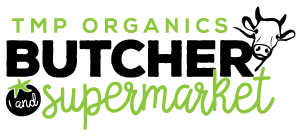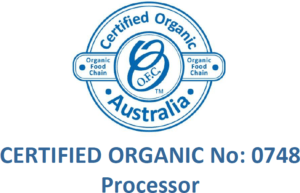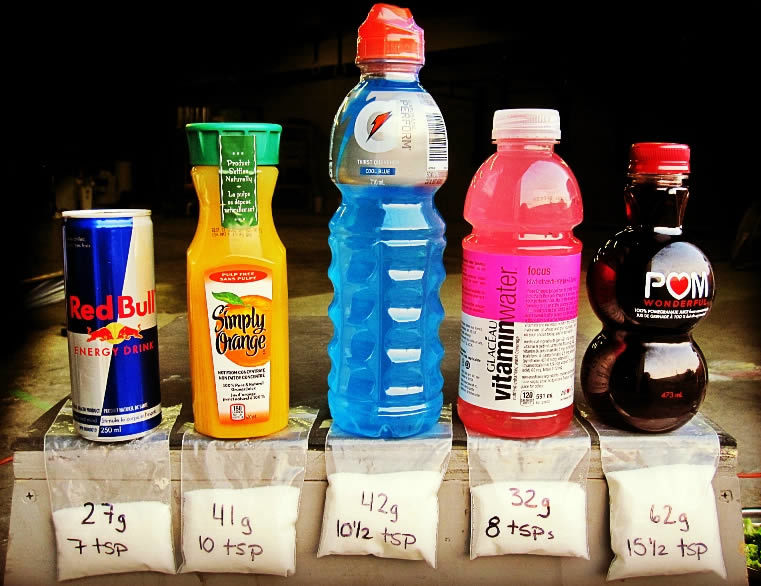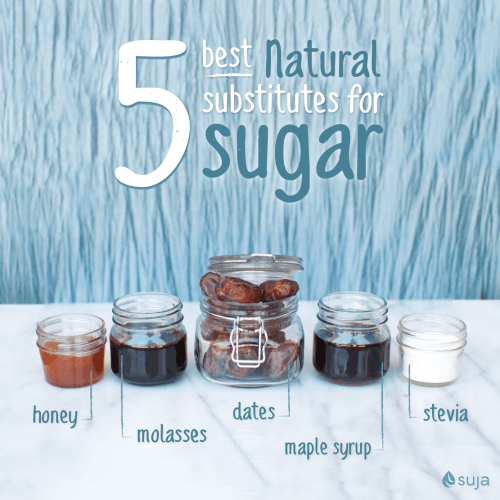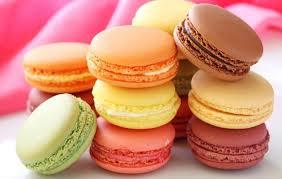Sugar has received a bad rap recently, perpetuated by popular programs such as Sarah Wilson’s “I Quit Sugar”, and documentaries such as That Sugar Film. Nutritionists, doctors and the media are all talking about it, so what’s the deal? Is sugar just the latest victim of finger-pointing health nuts, or is it something we should seriously consider cutting from our diets?
The Not-So-Sweet Truth
The World Health Organisation recommends our sugar consumption should only make up five per cent of our total daily calorie intake, which equates to about 25g or six teaspoons per day. The Australian Health Survey found that in 2011-2012, we were consuming an average of 60g of sugar each day, or around 14 teaspoons.
Dr Jimmy Louie, dietician and author, says that for a long time we criticised food manufacturers for producing core foods like bread, yoghurt and breakfast cereal high in added sugar. This study actually shows that up to 90 per cent of our added sugar intake is coming from what should be occasional food or treats such as sugar-sweetened beverages, sweet spreads, cakes, biscuits and pastries.
Sugar-sweetened beverages were revealed as the greatest source of added sugar in the Australian diet.
While “That Sugar Film” exposes the “hidden sugar” in foods we consider mostly healthy (think yogurt, juice, snack bars etc), it turns out the main issue is Aussies choosing to eat plain old junk food such as soft drinks and “treats” we know we shouldn’t be indulging in on a daily basis.
Dr Louie’s concern is that these high-sugar foods are providing calories, but not nutrition. This is dangerous for our health as sugar is addictive, and while we crave and consume more and more sugar-laden foods, we’re starving our body of important vitamins and minerals.
“Being addicted to sugar is not an emotional eating disorder,” claims Dr Mark Hyman. “It’s a biological disorder driven by hormones and neurotransmitters that fuel sugar and carb cravings, leading to uncontrolled overeating.”
Unfortunately, children and teenagers are most at risk. According to a University of Sydney study, more than three-quarters of children aged 9 to 13-years exceed the daily limit set out by the WHO.
“Never before in human history have we seen “adult onset” or type 2 diabetes in children,” says Dr Hyman. “Kids who haven’t even learned to swallow a pill are now facing giving themselves daily insulin injections”.
Are Artificial Sweeteners the Answer?
Diet drink consumption has increased dramatically, but diet soft drinks and artificial sweeteners are not the answer for cutting down on sugar. Evidence is mounting that these “fake sugars” and sugar substitutes actually lead to weight gain and an increased risk of diabetes.
“Tricking your brain into thinking you are getting something sweet plays tricks on your metabolism,” says Dr Hyman. “Artificial sweeteners disrupt the normal hormonal and neurological signals that control hunger and satiety (feeling full).”
Not All Sugars Are Equal
Before you go throwing out everything sweet in your kitchen, it’s important to understand that not all sugars are created equal.
Even the I Quit Sugar website says that when they refer to sugar, they’re talking about fructose specifically. The site states that while some sugars are safe to eat in moderation, fructose is not, as it passes directly to the liver and promotes fat storage. It is also addictive
“Our bodies are designed to gorge on fructose because it’s such a nifty source of fat- great back in the caveman days, but not so much today,” the website says.
Well respected nutritionist and author, Cyndi O’Meara, explains that sugar has been essential to our survival for eons, and that it’s not the sugar itself that’s the problem, it’s what we’ve done to it. We’ve created man-made simple sugars from wheat and corn, but simple sugars are never found alone in nature. They are always surrounded by other simple sugars, amino acids, fats and vitamins and minerals. White sugar is stripped of all nutrients that sugar cane and sugar beet have during the refinement process.
Cyndi adds dextrose, glucose, high fructose corn syrup, maltose, maltodextrin and xylitol to the list of sugars to avoid, along with all artificial sweeteners.
To give you an idea of where these sugars are hiding, here are some common high-fructose foods:

– Fruit juice
– Energy drinks
– Flavoured coffee beverages
– Cereal
– Cakes, pies and pastries
– Ice cream
– Canned and dried fruits
– Jams and jellies
– Condiments, dressings and sauces
Get Sweeter Naturally
Natural sugar has not been processed and includes raw honey, sugar found in fruit and root vegetables, dried fruits (without dextrose, vegetable oil or rice flour added), and stevia leaf (straight from the herb bush). These are the sugars that have other benefits other than just sweetening our food. Other sugars that can be consumed occasionally are organic maple syrup, rapadura sugar, coconut sugar and sugar juice (juice of the sugar cane).
“Sugar has it’s place in the diet,” says Cyndi, “but many people have abused this food. Sugar, obesity and heart disease are definitely linked but it is the abuse of sugar that is the problem as well as the quality of sugar.”
Do You Need to Give Sugar the Flick?
We’re not suggesting that cutting all sugar forever is sustainable or even healthy, but some people do benefit from quitting sugar for a period of time to break the addiction and get into healthier habits.
Dr Mark Hyman has a quiz for finding out whether you should quit sugar for a while. If you answer “yes” to any of these questions, quitting sugar may be your ticket to feeling better and losing weight.
Do you:
– have pre-diabetes or type 2 diabetes?
– have belly fat or are you overweight?
– crave sugar and carbs?
– have high triglycerides, low HDL cholesterol or been told your blood sugar is “a little high”?
– eat when you’re not hungry?
– experience a “food coma” after eating?
– get withdrawal symptoms if you cut down or stop eating sugar or flour?
– experience bloating, gas, reflux, irritable bowel, joint or muscle pain, brain fog, memory or mood problems, sinus or allergy symptoms?
Ready to get started?
You can stick to a few basic rules to help kick the sugar habit:
1. Go Cold Turkey
To truly help your body reset its neurotransmitters and hormones, you should stop eating all forms of sugar, all flour products and all artificial sweeteners for 10 days. These cause cravings and slow metabolism, leading to fat storage. If possible, also cut out all grains. Eat only real, fresh, whole food.
2. Don’t Drink Your Calories
Any form of liquid sugar calories is worse than solid food with sugar or flour. Liquid calories include soft drinks, juices, sports drinks, and sweetened teas or coffees. Sweet beverages send sugar directly to the liver, which is something we want to avoid.
3. Power Up with Protein
Eat protein at every meal, especially breakfast. This is the key to balancing blood sugar and cutting cravings. Eat plenty of nuts, seeds, eggs, fish, chicken and grass-fed meat. A serving size is around the size of your palm.
4. Eat Unlimited Good Carbs
We’re referring to non-starchy vegetables here, and recommend that you eat as much as you like. Non-starchy veggies include greens, the broccoli family (cauliflower, kale, collards etc.), asparagus, green beans, mushrooms, onions, zucchini, tomatoes, fennel, eggplant, artichoke, capsicum etc. Avoid potatoes, sweet potatoes, winter squash and beets for 10 days.
5. Fight Sugar with Fat
That’s right, fat is your friend. It makes you feel full, balances your blood sugar and is necessary for fueling your cells. Have good fats at every meal and snack on nuts and seeds.
For our recent article on the benefits of healthy fats, click here (insert link http://www.tmporganicsbutcherandsupermarket.com.au/know-your-fats-myths-debunked.html)
6. Get Enough Sleep
Sleep deprivation drives sugar and carb cravings by affecting your appetite hormones. When we’re tired and need more energy, we tend to reach for the sweet stuff for a quick energy boost. Make sure you’re getting plenty of sleep while avoiding sugar.
It’s important to remember that once you’ve completed your sugar-free period, eating healthy natural sugars as an occasional treat is okay. People who eat a whole food diet and occasionally indulge are on the right track.
Be sure to drop into our store to stock up on fresh vegetables and delicious organic meat for your sugar-free journey.
We recommend speaking with a qualified medical professional before participating in any dietary restrictions or programs.
Sources:
https://changinghabits.com.au/sugar-is-it-really-the-new-poison/
https://iquitsugar.com/faqs/glucose-better-fructose/
http://drhyman.com/blog/2014/03/06/top-10-big-ideas-detox-sugar/
